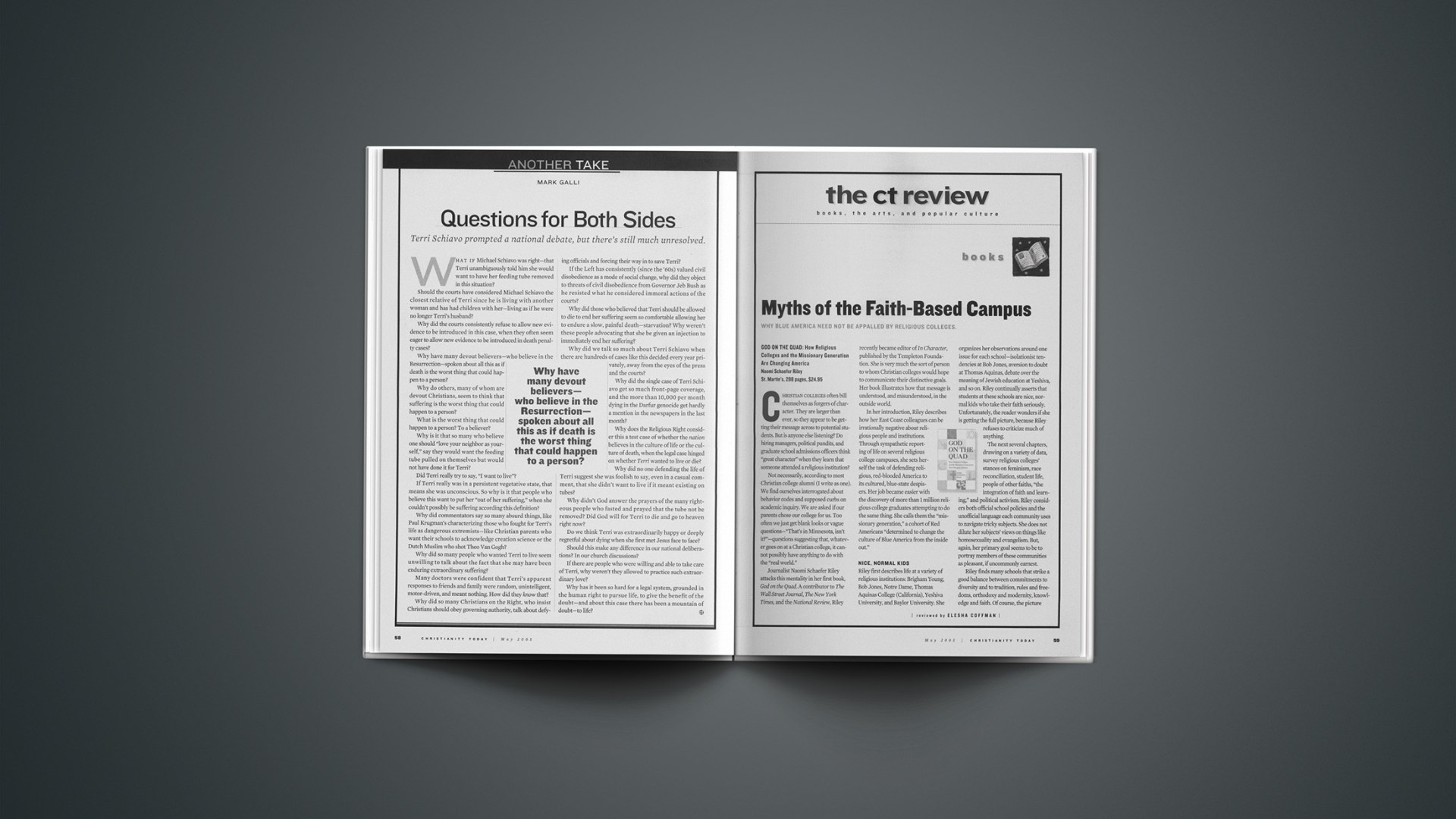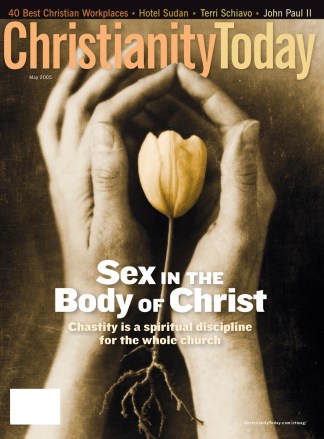What if Michael Schiavo was right—that Terri unambiguously told him she would want to have her feeding tube removed in this situation?
Should the courts have considered Michael Schiavo the closest relative of Terri since he is living with another woman and has had children with her—living as if he were no longer Terri’s husband?
Why did the courts consistently refuse to allow new evidence to be introduced in this case, when they often seem eager to allow new evidence to be introduced in death penalty cases?
Why have many devout believers—who believe in the Resurrection—spoken about all this as if death is the worst thing that could happen to a person?
Why do others, many of whom are devout Christians, seem to think that suffering is the worst thing that could happen to a person?
What is the worst thing that could happen to a person? To a believer?
Why is it that so many who believe one should “love your neighbor as yourself,” say they would want the feeding tube pulled on themselves but would not have done it for Terri?
Did Terri really try to say, “I want to live”?
If Terri really was in a persistent vegetative state, that means she was unconscious. So why is it that people who believe this want to put her “out of her suffering,” when she couldn’t possibly be suffering according this definition?
Why did commentators say so many absurd things, like Paul Krugman’s characterizing those who fought for Terri’s life as dangerous extremists—like Christian parents who want their schools to acknowledge creation science or the Dutch Muslim who shot Theo Van Gogh?
Why did so many people who wanted Terri to live seem unwilling to talk about the fact that she may have been enduring extraordinary suffering?
Many doctors were confident that Terri’s apparent responses to friends and family were random, unintelligent, motor-driven, and meant nothing. How did they know that?
Why did so many Christians on the Right, who insist Christians should obey governing authority, talk about defying officials and forcing their way in to save Terri?
If the Left has consistently (since the ’60s) valued civil disobedience as a mode of social change, why did they object to threats of civil disobedience from Governor Jeb Bush as he resisted what he considered immoral actions of the courts?
Why did those who believed that Terri should be allowed to die to end her suffering seem so comfortable allowing her to endure a slow, painful death—starvation? Why weren’t these people advocating that she be given an injection to immediately end her suffering?
Why did we talk so much about Terri Schiavo when there are hundreds of cases like this decided every year privately, away from the eyes of the press and the courts?
Why did the single case of Terri Schiavo get so much front-page coverage, and the more than 10,000 per month dying in the Darfur genocide get hardly a mention in the newspapers in the last month?
Why does the Religious Right consider this a test case of whether the nation believes in the culture of life or the culture of death, when the legal case hinged on whether Terri wanted to live or die?
Why did no one defending the life of Terri suggest she was foolish to say, even in a casual comment, that she didn’t want to live if it meant existing on tubes?
Why didn’t God answer the prayers of the many righteous people who fasted and prayed that the tube not be removed? Did God will for Terri to die and go to heaven right now?
Do we think Terri was extraordinarily happy or deeply regretful about dying when she first met Jesus face to face?
Should this make any difference in our national deliberations? In our church discussions?
If there are people who were willing and able to take care of Terri, why weren’t they allowed to practice such extraordinary love?
Why has it been so hard for a legal system, grounded in the human right to pursue life, to give the benefit of the doubt—and about this case there has been a mountain of doubt—to life?
Why have many devout believers—who believe in the Resurrection—spoken about all this as if the worst thing that could happen to a person is dying?
Copyright © 2005 Christianity Today. Click for reprint information.










